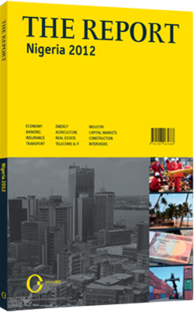All’s well that ends dwell: Reducing bureaucracy is one of the targets for ports
In 2011 Nigerian ports imported 660,000 containers, for a 10% increase year-on-year (y-o-y), and the country’s port capacity is set for a boost with the opening of a new $1.7bn facility. The port, in Lekki, in the Lagos Free Trade Zone (LFTZ), is expected to have an annual capacity of 2.5m twenty-foot equivalent units (TEUs) on completion of the first phase in 2015. In addition to three container berths, the port will also feature one dry bulk berth and three liquid berths, which the ports at Tin Can Island and Apapa do not have.
PLANS: This public-private partnership with Tolaram Group will produce the deepest port in West Africa, and one that will be able to accommodate ships carrying up to 8000 TEUs. The special purpose vehicle created for the project, Lekki Port LFTZ Enterprise, recently signed a memorandum of understanding with Manila-based International Container Terminal Services for a construction and management agreement.
Dwell time at terminals operated by Tin Can Island Container Terminal (TCIT) and APM Terminals (APMT) stood at 21 days in early 2012. Shipping volumes experienced a dramatic rise, doubling between 2004 and 2008, before stabilising. There is still some congestion at the ports, but this is due to the inefficiencies in Customs, where the overlap of authorities is the biggest contributor to bottlenecks, and sometimes up to 70 signatures may be required prior to processing.
CONCESSIONS: In 2006 Tin Can Island was divided into five major concessions, while Apapa’s terminals were split and are now managed by: ENL Consortium, Greenview Nigeria Limited, Apapa Bulk Terminal Limited, and AP Moller , a subsidiary of Maersk Shipping Ltd, who emerged the sole bidder for the lucrative Container Terminal. APMT received the largest share, taking around 50%. At Tin Can, Bolloré SDV has invested heavily in overhauling the existing infrastructure while Grimaldi has invested from scratch and improved efficiency. Smaller operators Sifax Nigeria and Five Star Logistics are also involved, while TICT has a 25% share.
Before the concessions in 2005, the distribution of container traffic in Lagos was around 65% for Apapa and 35% for Tin Can Island. Now, the figures are 45% and 55%, respectively. This reversal resulted from the variety of operators shipping lines can choose from at Tin Can Island, which helps them optimise service and cost competitiveness. Another is the cost of delivering off-dock containers to outside areas pre-clearance. Apapa charges for transport, while none of the Tin Can Island operators do. Over the past few years, TICT has put much emphasis on improving efficiency through investment in rubber tyre gantry (RTG) cranes and ridge trackers. The focus is now on bringing in four more RTG cranes in 2012, and in discharging cranes to optimise the number of containers stored on the quay.
DELAYS: Most delays are due to lengthy Customs procedures and congestion along access roads. Thus, Customs reform has had little impact so far. Trucks are now prohibited from parking on roads in and out of the ports, but a more structural, long-term solution would be to create more off-dock areas outside the cities, so that the port is only used for loading and unloading ships. Government support is needed to allocate this land and enforcing rules on where containers should go. One option is to send empty containers back to port by barge to alleviate the pressure on the road network. A further issue is that Nigeria lacks the exporting capacity to fill all the empty containers leftover after goods arrive, and it is difficult to make room for new arrivals. Increased efficiency and added capacity at Lekki are expected to help bring dwell times down in the future.
You have reached the limit of premium articles you can view for free.
Choose from the options below to purchase print or digital editions of our Reports. You can also purchase a website subscription giving you unlimited access to all of our Reports online for 12 months.
If you have already purchased this Report or have a website subscription, please login to continue.

